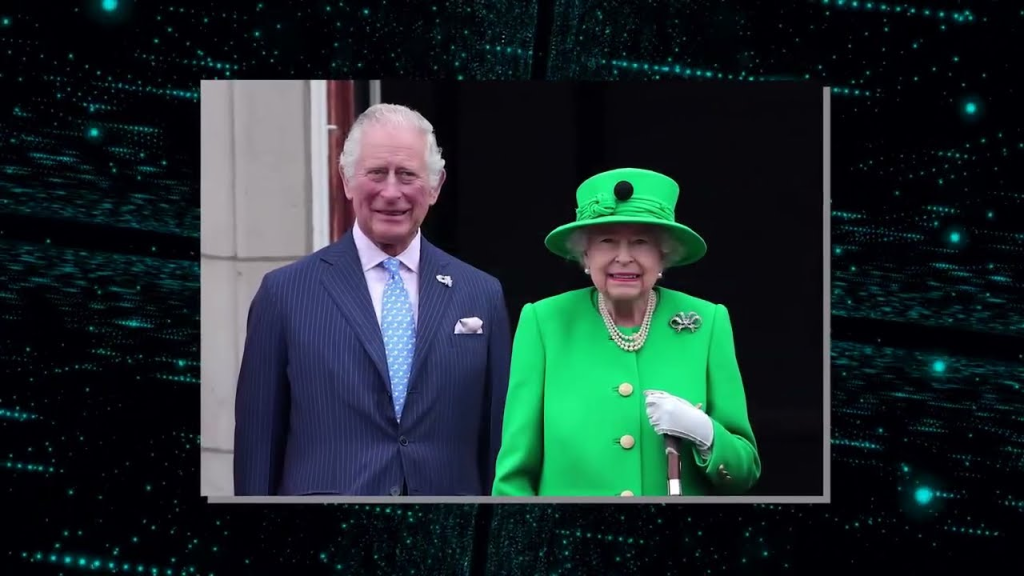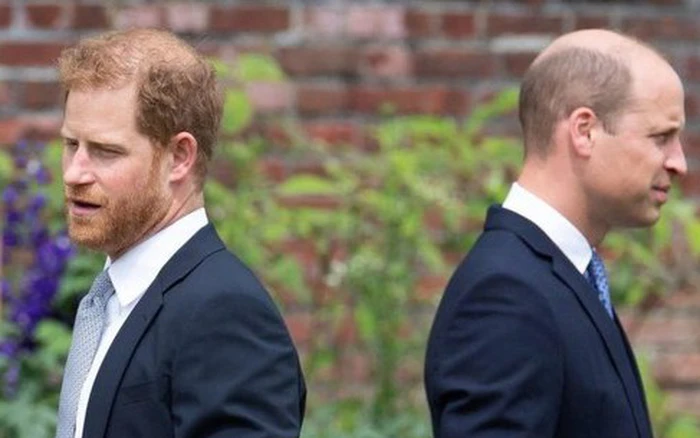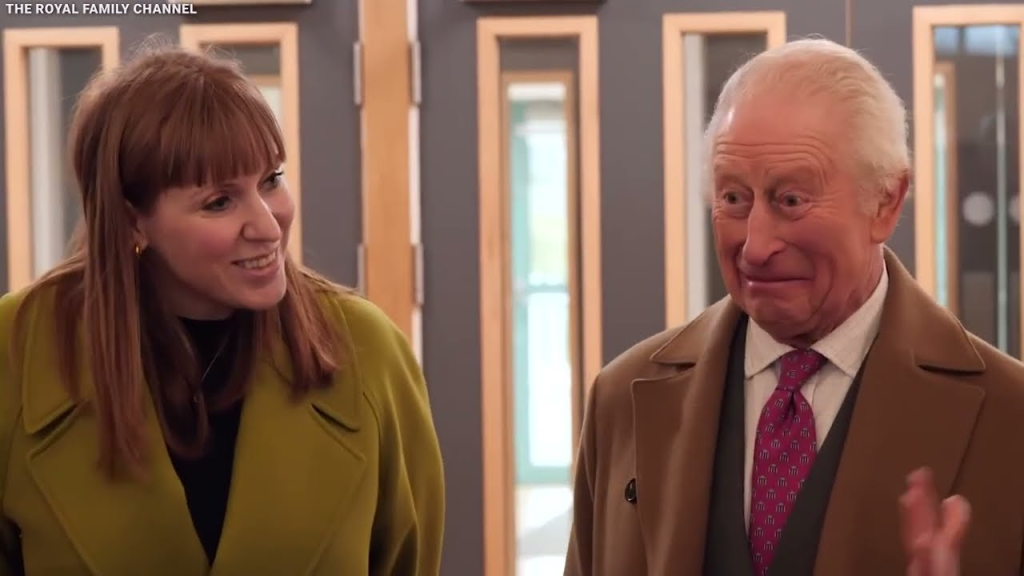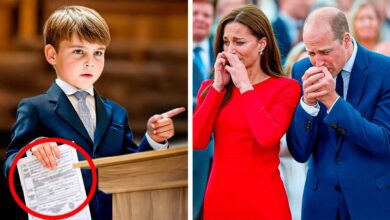JUST IN: “The Palace Has Confirmed the Worst” — Inside the Heart-Stopping Hours After Prince Richard’s Sudden Passing⚡

The dawn that changed everything did not arrive with thunder or drama. It slipped quietly through the lace curtains of Buckingham Palace, turning marble corridors a soft, uncertain gray. Staff moved in their usual rhythm—polishing silver, drawing curtains, preparing trays of tea—yet something in the air felt off, like the building itself was holding its breath.

In his private study, King Edmund IV sat rigid in his chair, a single letter shaking in his hands. The seal of the royal physician had already been broken. The words inside were cold, clinical… and final.
“Your Majesty, His Royal Highness Prince Richard succumbed peacefully in the early hours of the morning.”
“Peacefully.”
To the king, it felt like mockery.
He pressed the letter to his chest as if he could hold back reality with sheer force of will. Then came the quiet knock that would pull him from private grief into public duty.
“The Nation Will Need to Know”
Sir Malcolm, the royal steward, entered with the weight of centuries in his voice.
“The press office awaits your instruction, Your Majesty. They will not release the statement without your word.”

The king’s first concern was not headlines, but home.
“She has, sir. Her Majesty requests your presence.”
In Queen Alexandra’s apartments, lilies filled the air with their sweet, suffocating scent. She sat by the window, gloved hands clasped, eyes red but posture perfectly regal. Between them lay a copy of the same letter.

“They said it was sudden,” she whispered. “He was laughing with the children last week.”
The king knelt before her, not as sovereign, but as husband.
“The world will need to know soon,” he said.
“The world,” she replied quietly, eyes on a photograph of Richard in uniform, “never knew how much he wanted to live quietly.”
“He will have more light than he ever wished,” the king answered. “By nightfall, the whole world will mourn him.”
10:00 A.M. — The Palace Confirms the Worst
In the great hall, cameras and microphones were lined up with military precision. Outside the gates, journalists already pressed against the railings, sensing that something terrible was coming.
At precisely 10:00, Sir Malcolm stepped before the microphones.
“It is with profound regret that the palace confirms the death of His Royal Highness Prince Richard of Wales, beloved son of Their Majesties the King and Queen. He passed away peacefully at home, surrounded by family.”
For a heartbeat, London froze.
Then came the machine-gun rattle of camera shutters. Within minutes, the announcement flashed across phones, televisions, and radios around the world. In shops, buses, cafés, people stopped in mid-sentence. Church bells began to toll, one parish at a time, until the entire capital rang with mourning.
Inside the palace, the family retreated behind heavy doors.
Outside, an entire kingdom grieved with them.
A Palace Wrapped in Silence
Princess Charlotte, the heir, arrived first. Summoned from the countryside, she stood beside her father in the crimson drawing room, pale but composed, her hands trembling despite all her training.
“He always said I’d be stronger than I thought,” she murmured.
“He was right,” the king answered. “You must be.”
Below, in the servants’ corridor, staff who had watched Prince Richard grow from boy to man lowered their heads. In the kitchens, the clatter of cutlery stopped. Even the palace guards outside seemed to stand taller, their stoic silence suddenly filled with feeling.
Across the city, shutters lowered. Radios changed station. Newscasters repeated the same phrase:
“The palace has confirmed the worst.”
Duty moved quickly. Grief did not.
The Lord Chamberlain organized a 14-day official mourning period. Flags were lowered to half-mast. Security expanded as crowds began forming outside the gates. The prime minister arrived to offer condolences “on behalf of the nation,” but even his carefully crafted words could not mask the sharp reality: this was not just a state loss, but a family shattered.
Grief in Public View
As the days unfolded, the palace became both fortress and stage.
Behind closed doors, Queen Alexandra sat surrounded by her children.
“He was the peacemaker among us,” she said, voice breaking. “Even as a child, he hated quarrels.”
Princess Charlotte clutched an unopened letter from her brother, written just days before his death. He had wanted to visit their father’s old regiment. Now, the ink felt like a goodbye he never meant to write.
Elsewhere, advisers debated symbolism and optics.
“The crown must appear strong,” one insisted.
“The crown,” the king replied quietly, staring out at the rain-washed gardens, “must appear honest.”
Outside, the crowds multiplied. Flowers piled against the iron gates in a tide of color. Candles flickered in the drizzle. Children pressed handmade cards against the bars. Every note, every single bouquet said the same thing in different words:
We see your pain. We share it.
The First Public Appearance: A Kingdom Holds Its Breath
On the fourth day, the royal family emerged.
At noon, the palace doors opened and a wave of silence washed over the courtyard. No cheers, no shouting—only cameras clicking and the soft sound of rain.
The king and queen walked side by side, hand in hand. Behind them, Charlotte and her younger brother followed, heads bowed. A little girl near the front held out white tulips with shaking hands. The queen stepped toward her, took the flowers gently, and said, “Thank you, darling.”
For a moment, the distance between crown and crowd disappeared.
In the palace chapel, the prince’s coffin lay draped in the royal standard beneath stained glass windows flickering with candlelight. The king rested his hand on the casket longer than protocol required. The queen knelt beside him, lips moving in silent prayer. Cameras captured the scene, but even through the lens it was clear: this was not performance. It was raw, unbearable reality.
A Farewell That Stopped the Nation
The funeral transformed the streets of London into a river of black.
The carriage bearing Prince Richard’s coffin rolled slowly through the city. From balconies, petals rained down. Veterans saluted. Schoolchildren waved flags through tears. Westminster Abbey, bathed in colored light from ancient glass, held the world’s leaders—but it was the queen’s single visible tear that broke millions of hearts watching at home.
“In times such as these,” the Archbishop said, voice echoing under the vaulted ceiling, “we are reminded that even those born to crowns and palaces walk the same road of sorrow as all humankind.”
From London to Windsor, the procession moved under a canopy of silence.
At the burial chapel, the king placed his hand on the coffin one final time.
“Sleep well, my son,” he whispered.
A lone piper played as the stone closed. The lament rose, spiraled through the air, and vanished into the wind. When the final note faded, it felt as though the entire kingdom exhaled at once.
From Shattering Loss to Living Legacy
In the weeks that followed, the palace gates stayed closed—but the flowers outside did not stop. Letters of condolence flooded in from presidents, schoolchildren, soldiers, strangers. The rooms filled with envelopes and handwritten messages, a paper monument to a life cut short.
Inside, the royal family quietly reassembled the pieces of a new reality.
The queen walked the gardens alone, finding fragile peace by the lake where swans drifted in silence. The king returned to his duties with a new softness in his voice. “Suffering,” he told the nation, “is not the end of strength. It is the shaping of it.”
A foundation was created in Prince Richard’s name, dedicated to young people and the causes he cared about. Trees were planted across the Commonwealth. Scholarships were funded. Projects launched. Slowly, grief bent into purpose.
Historians would later call this tragedy a turning point—a moment when the monarchy stopped being a distant symbol and became something closer, more human.
By the time the palace gardens bloomed again, the pain had not vanished. But it had changed shape. It had become legacy.
And above it all, one sentence from that terrible morning still echoed:




